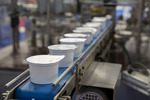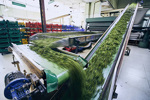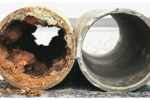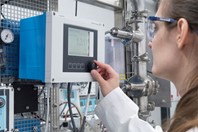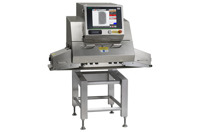CLEANING CASE STUDIES
-
Clean-In-Place (CIP) Recovery With Efficient Filtration
With the goal of lowering CIP process costs, a dairy producer and processor collaborated with Pall to implement a microfiltration solution, ultimately reducing operating costs and environmental footprint.
-
Pasteurization In A Laboratory Glassware Washer
Typically, pasteurization is performed with a benchtop pasteurization system in a stove-top immersion bath. Bottles are immersed in boiling water and held at temperature for a given amount of time. The problem is while the immersion process is inexpensive, it is neither accurate nor controlled, and the benchtop equipment can be expensive and complicated to install and operate. A solution is the laboratory glassware washer which simulates tunnel washer conditions— i.e. the bottles are sprayed with water at a certain temperature.
CLEANING WHITE PAPERS & ARTICLES
-
Principles Of Due Diligence For Food Safety And Quality Control
Explore the core principles of due diligence, legal requirements and standards for food safety, and ways to reduce the risk of product recalls.
-
Understand Hygienic Principles In Food Manufacturing
This guide provides you with the tools to evaluate the washdown capabilities of a given piece of production equipment.
-
Air Quality And Air Treatment In Compressed Air Systems
Compressed air quality is mission critical in manufacturing. When determining the right air treatment components for a compressed air system, there is a great deal to keep in mind. In this paper, we discuss compressed air quality and how it impacts operating costs and production.
-
Over-Sized And Under-Utilized: An Epidemic
With over ten thousand air systems audits under our belt, we've seen it all and learned a few things. One of the most common problems we see is that most systems have far more capacity than needed. On average, users operate at 44% of peak capacity. It's so common, we'd say it is an epidemic, and even our own customers are not immune despite our efforts to inoculate with education. This article takes a look at some actual examples of over-sized systems and the costs that resulted. Learn how to properly plan for a compressed air system and what your options are with an existing system.
-
Principles Of Hygienic Inspection Equipment Design In The Dairy Industry
Learn how inspection equipment should be designed following international sanitary design standards to prevent the growth and spread of biological contamination in dairy plants.
-
Minimizing Surface Residues With Aqueous Cleaning
The benefits of employing aqueous cleaning in pharmaceutical manufacturing are numerous. Virtually any pharmaceutical manufacturing equipment from tablet press to a stainless steel mixing tank can achieve their defined critically clean criteria using aqueous cleaning. Typically aqueous cleaners are formulated to ensure maximal cleaning performance by using key ingredients such as surface active agents (surfactants) that are excellent wetting agents that allow the cleaning solution to penetrate into crevices while getting under soils to allow for removal. Often very dilute solutions of aqueous cleaner effectively removes even worst case substances off a variety of hard surfaces including stainless steel, glass, plastic, or porcelain. By Malcolm McLaughlin
CLEANING PRODUCTS
-
Environmental protection, consistent product quality, process optimization and safety – just a few reasons why liquid analysis is becoming increasingly essential. Liquids such as water, beverages, dairy products, chemicals and pharmaceuticals have to be analyzed day in and day out. We support you in fulfilling all these measuring tasks with application know-how and cutting-edge technologies. Discover our comprehensive portfolio and choose the product best suited to your process needs.
-
A new range of sanitising equipment specifically designed for the food production industry, which kills all common, bacteria, viruses and spoilage contaminants without using environmentally damaging chemicals such as Chlorine has been launched for the food industry
-
The XR75 Curtainless Up/Down Conveyor is ideal for lightweight packaged products and many unpackaged bulk applications.
CLEANING MULTIMEDIA
-
Video: Filamatic DFS Non-Dockable Rotary Lobe Filler Filling--Accommodates a wide variety of liquid filling applications and fluid types. Easily read touch screen with electronic volume adjustment controls for speed and ease of setup. A variety of metering systems are available including piston, flowmeter, and lobe that can provide consistent results with wide range of fills up to 200+ cpm. Design models offer CIP (clean in place) or COP (clean-out-of-place)options.


